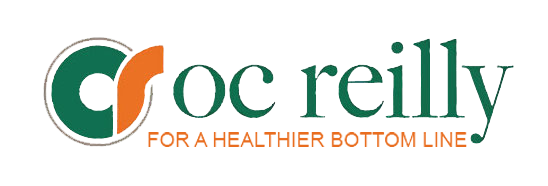OC Reilly Blog: No Mystery, Just History
By Bill O’Connor, President and CEO, OC Reilly Inc.
(March 7, 2016)—What you find, over the course of a lifetime and a professional career, is that something that one person finds mysterious, confusing, and incalculable, another person handles as just another day at the office. Supply chain management within the health care world offers a perfect case in point.
A blog entry on the hfma.org website www.hfma.org/supplypricing titled “Unraveling the Mysteries of Health Care Supply Chain,” makes the correct call to action – that health care systems must pay closer attention to the costs of their equipment, supplies, food service, and other contracted services – but cloaks this task under a spooky shroud of nearly impenetrable riddles that could stump the legendary Sherlock Holmes and even that trenchcoat-wearing TV sleuth Columbo.
“Hospitals experience substantial variation in prices paid for supplies and products,” the essay reads. “Health care pricing is designed to be complicated and confusing, with built-in distractions such as rebates, bonuses, and tiers – leaving hospitals without resources to monitor prevailing market pricing…the price of a product often is mired with confusing variables…new products entering the market often are purchased without any price negotiation whatsoever…with no incentive or obligation for suppliers to share what other hospitals are paying for the exact same items, hospitals are left working in the dark, operating under a veil of mystery, with no idea whether the best price has been achieved, or if they have overpaid.”
The hfma.org blog correctly states that hospitals and health care systems will continue to feel the ever-increasing pressure to maintain – or, in some cases, salvage attainable – margins, and that supply chain systems represent an important tool in that ongoing struggle.
But really, now. The picture is not anywhere near as dark and foreboding as the essay paints. Managing supply chain decisions in health care has nothing to do with mystery. It’s all about history, and learning from it.
A professional supply chain consultant – one who brings first-hand experience and perspective from both the seller and purchaser sides of the equation, and who brings extensive knowledge of the industry and its trends – can assess a hospital’s past spend, evaluate opportunities to renegotiate or standardize purchases and purchasing decisions, and set in place a process and procedure to ensure meaningful and sustainable cost efficiencies.
So Sherlock and Columbo? Thanks, but you’re not needed, fellows. There’s no mystery here. Just history.
